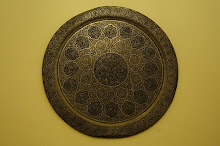For over a decade, Lebanese architect Mona el-Hallak has waged a single-handed campaign to turn a war-ravaged belle epoch building in Beirut into the first museum devoted to the contemporary history of the city.
The museum, which will be called "Beit Beirut", will devote part of its display to addressing the country's devastating 15 year civil war (which lasted from 1975-1990).
Also known as the "Barakat building", the four-story structure sat astride the city’s so-called “Green Line” during the war, which divided the Christian and Muslim quarters of Beirut. It is an area that saw some of the heaviest fighting during those years.
 The architect who created the building in the 1920s, designed it in such a way that would later make it a perfect hideaway for snipers during the war - providing depth, safety and a variety of vantage points from which to shoot at passersby on the street. During the war scores of civilians were killed outside its doorsteps.
The architect who created the building in the 1920s, designed it in such a way that would later make it a perfect hideaway for snipers during the war - providing depth, safety and a variety of vantage points from which to shoot at passersby on the street. During the war scores of civilians were killed outside its doorsteps. When real estate developers tried to turn the pockmarked structure into a parking lot in 1997, Hallak launched her crusade to save the edifice from demolition. At the same time she put forward an alternate vision for the building: to turn it into a museum devoted to the memory of Beirut, where visitors could come and learn about the civil war.
It was an ambitious scheme in a country of deep and longstanding ethnic disputes, and where the erstwhile conflict is seldom discussed in any meaningful way.
“After almost a generation of reconstruction there is not one single museum, or centre, that addresses what happened here and how 100,000 Lebanese were killed,” says Hallak. “This project is an attempt to reverse this dangerous collective amnesia among the Lebanese.”
For 15 years real estate developers, politicians, and a public more interested in forgetting the past threw every obstacle into her path. But Hallak’s determination and deft campaign proved too difficult to stymie.
After much toil the project has cleared the final hurdles to construction. Renovation work on the Barakat Building, which began several weeks ago, is slated for completion in 2015.
A full-length Q&A with Hallak about the history of the building and her efforts to save it can be read here.














No comments:
Post a Comment